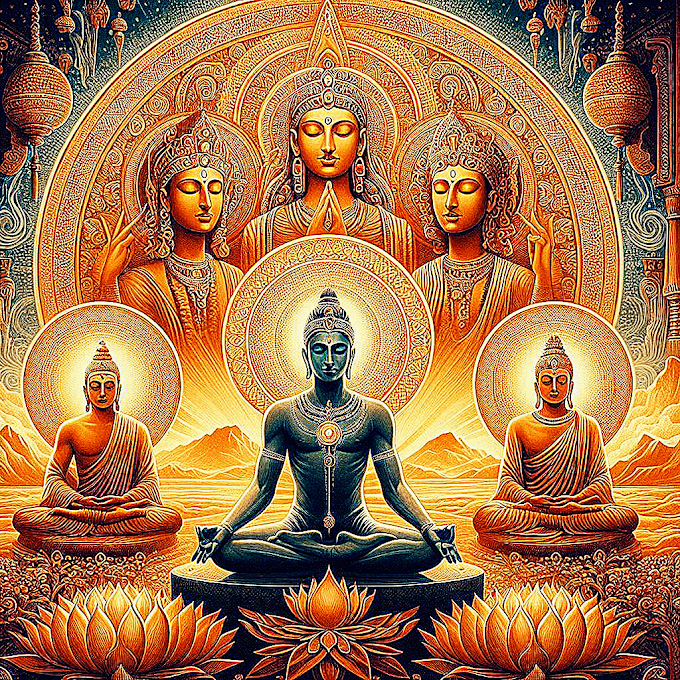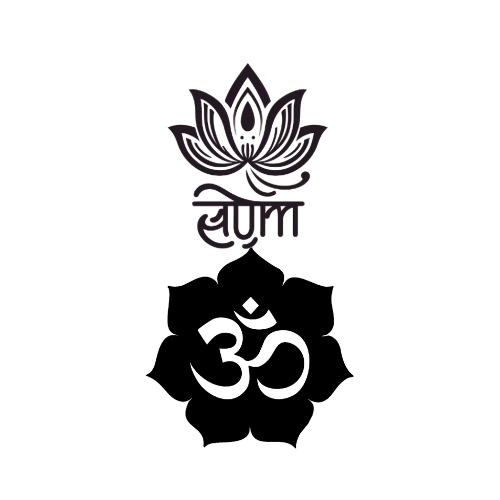Qualities of a Perfect Yoga Guru or Teacher
A perfect yoga guru is more than just an instructor; they embody the philosophy, ethics, and spirit of yoga while guiding students on a transformative journey. Rooted in traditional texts and modern educational frameworks, the following discussion outlines the key qualities of an ideal yoga teacher, supplemented by references to respected books and philosophies in yoga and pedagogy.
Outline
-
Introduction
- The significance of a yoga guru in spiritual and practical realms.
- Objectives of identifying the qualities of an ideal yoga teacher.
-
Core Qualities of a Perfect Yoga Teacher
- Deep Knowledge of Yoga Philosophy and Practice
- Empathy and Compassion
- Authenticity and Integrity
- Effective Communication Skills
- Adaptability and Inclusiveness
- Commitment to Lifelong Learning
- Emotional Intelligence
- Ability to Inspire and Motivate
- Patience and Perseverance
- Physical and Mental Discipline
-
Role of a Yoga Guru in Holistic Development
- Guiding students in physical, mental, and spiritual growth.
- Aligning teaching methods with the principles of yoga philosophy.
-
Challenges Faced by Yoga Teachers
- Balancing tradition with modernity.
- Addressing diverse student needs.
-
Conclusion
-
References
1. Introduction
A yoga guru holds a revered position in the journey of self-discovery and personal transformation. The term "guru" originates from the Sanskrit words gu (darkness) and ru (removal), indicating a teacher who leads students from ignorance to enlightenment. While modern yoga teachers may not always adhere to traditional roles, they nonetheless play a crucial role in facilitating personal growth, well-being, and self-awareness. This article examines the essential qualities that constitute an ideal yoga teacher, blending ancient wisdom with contemporary insights.
2. Core Qualities of a Perfect Yoga Teacher
2.1 Deep Knowledge of Yoga Philosophy and Practice
A profound understanding of both the theoretical and practical aspects of yoga is essential. This includes mastery of asanas, pranayama, meditation techniques, and the philosophical tenets found in texts like the Yoga Sutras of Patanjali and the Bhagavad Gita.
- Explanation: A yoga teacher must bridge the gap between the ancient roots of yoga and its modern applications.
- Reference: T.K.V. Desikachar in The Heart of Yoga emphasizes the importance of teaching yoga as a holistic practice that encompasses mind, body, and spirit.
2.2 Empathy and Compassion
Empathy enables a teacher to connect with students on a personal level, fostering a safe and nurturing environment.
- Explanation: A teacher’s ability to understand students’ struggles, whether physical or emotional, creates trust and enhances the learning experience.
- Reference: Judith Hanson Lasater in Living Your Yoga highlights that teaching yoga with compassion helps address individual needs while respecting students' limits.
2.3 Authenticity and Integrity
An ideal yoga teacher practices what they preach, embodying the ethical principles of yoga, including the Yamas (social ethics) and Niyamas (self-discipline).
- Explanation: Authenticity builds credibility and inspires students to integrate yoga’s teachings into their lives.
- Reference: B.K.S. Iyengar in Light on Yoga emphasizes that integrity in both practice and teaching is foundational to the role of a yoga teacher.
2.4 Effective Communication Skills
Clear and concise communication ensures that students understand instructions, philosophy, and feedback.
- Explanation: Effective communication involves verbal cues, demonstrations, and non-verbal signals like body language.
- Reference: Mark Stephens in Teaching Yoga discusses how communication is vital for providing clear guidance and building rapport.
2.5 Adaptability and Inclusiveness
A perfect yoga teacher tailors their approach to accommodate students’ diverse needs, abilities, and goals.
- Explanation: Inclusiveness ensures that yoga is accessible to everyone, regardless of physical, mental, or cultural differences.
- Reference: A.G. Mohan in Yoga for Body, Breath, and Mind stresses the importance of adapting yoga practices to suit individual conditions and circumstances.
2.6 Commitment to Lifelong Learning
A yoga teacher must remain a student, continually deepening their knowledge and refining their skills.
- Explanation: Yoga is a vast and evolving discipline; staying updated allows teachers to provide relevant and effective instruction.
- Reference: Swami Satchidananda in The Yoga Sutras of Patanjali advises teachers to approach learning with humility and openness.
2.7 Emotional Intelligence
Emotional intelligence enables teachers to recognize and manage their own emotions while being attuned to their students' feelings.
- Explanation: This quality fosters resilience, empathy, and the ability to create a supportive learning environment.
- Reference: Daniel Goleman’s work on emotional intelligence aligns with yoga’s emphasis on self-awareness and mindfulness.
2.8 Ability to Inspire and Motivate
A great teacher inspires students to persevere and deepen their practice, even through challenges.
- Explanation: Motivation stems from a teacher’s passion, charisma, and ability to convey the transformative power of yoga.
- Reference: Erich Schiffmann in Yoga: The Spirit and Practice of Moving Into Stillness discusses how a teacher’s enthusiasm can ignite students’ commitment.
2.9 Patience and Perseverance
Teaching yoga requires immense patience, as students progress at their own pace and encounter unique challenges.
- Explanation: Perseverance ensures that the teacher remains committed to their students’ growth, even in the face of setbacks.
- Reference: B.K.S. Iyengar in Light on Yoga emphasizes that patience is essential for both teacher and student in mastering the practice.
2.10 Physical and Mental Discipline
A yoga teacher should exemplify the discipline required to maintain a consistent personal practice and mental clarity.
- Explanation: Discipline demonstrates the teacher’s dedication to the principles and practices of yoga.
- Reference: Patanjali’s Yoga Sutras highlight the role of Tapas (discipline) in achieving self-mastery and focus.
3. Role of a Yoga Guru in Holistic Development
A yoga teacher plays a multifaceted role, guiding students in:
- Physical Development: Ensuring safe and effective practice of asanas.
- Mental Development: Promoting mindfulness, focus, and emotional resilience.
- Spiritual Growth: Encouraging self-reflection and connection with a higher purpose.
By integrating these aspects, the yoga teacher becomes a catalyst for the student’s holistic well-being.
4. Challenges Faced by Yoga Teachers
Yoga teachers encounter various challenges, such as:
- Balancing Tradition and Modernity: Navigating the tension between preserving yoga’s roots and adapting to contemporary needs.
- Catering to Diverse Needs: Addressing the varied physical, emotional, and cultural requirements of students.
- Maintaining Personal Practice: Balancing teaching responsibilities with personal growth.
5. Conclusion
The qualities of a perfect yoga guru are multifaceted, encompassing knowledge, empathy, integrity, adaptability, and discipline. By embodying these traits, yoga teachers not only guide students in mastering asanas but also inspire them to lead mindful, balanced, and meaningful lives. The evolving role of yoga teachers as both custodians of tradition and modern educators underscores the enduring relevance of yoga in today’s world.
6. References
- Iyengar, B.K.S. Light on Yoga.
- Desikachar, T.K.V. The Heart of Yoga.
- Stephens, Mark. Teaching Yoga.
- Lasater, Judith Hanson. Living Your Yoga.
- Mohan, A.G. Yoga for Body, Breath, and Mind.
- Patanjali. The Yoga Sutras of Patanjali.
- Cope, Stephen. The Wisdom of Yoga.
- Schiffmann, Erich. Yoga: The Spirit and Practice of Moving Into Stillness.
- Satchidananda, Swami. The Yoga Sutras of Patanjali.
- Goleman, Daniel. Emotional Intelligence.

.png)
.png)
.png)
.png)



.png)
.png)
.png)
.png)
